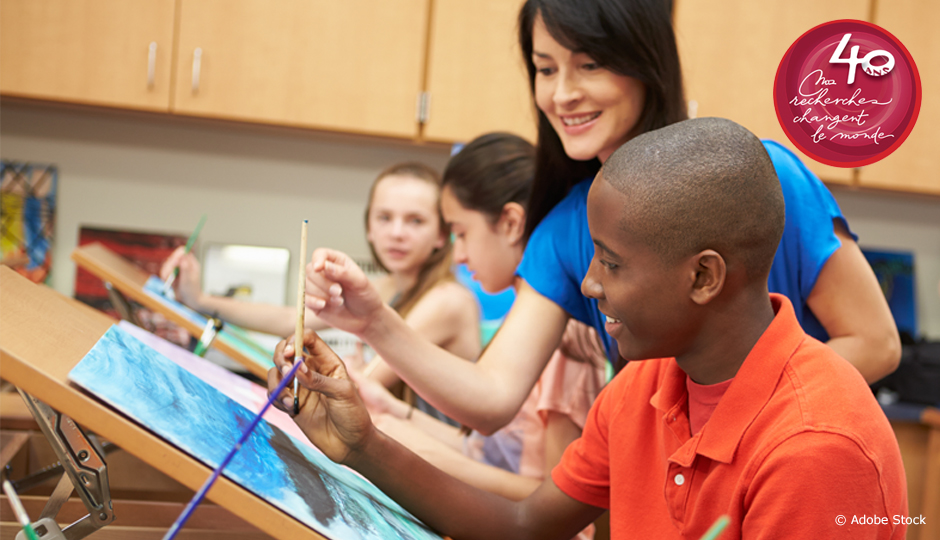Sport, music, arts, leisure clubs... Under what conditions do extracurricular activities contribute positively to adolescent development? What types of benefits do young people get from them?
The study shows a correlation between activity engagement and more harmonious psychosocial development.
Heather Lawford, a psychology researcher at Bishop’s University, conducted a longitudinal study of 50 youth between the ages of 17 and 20. Each year, participants were asked to complete an online questionnaire that focused on extracurricular activities, community engagement, identity, autonomy and well-being. They could also share short personal stories related to these occupations.
The research findings highlight the importance of mentoring and show that listening, counselling and encouragement improve young people’s perception of themselves. The study also indicates that generativity, or a concern for future generations, is already present in these adolescents, whereas it is generally seen as a trait in people over 35. These young people show a desire to make a difference in the world, although that desire is not yet manifested in a specific project.
In addition, the study shows a correlation between activity engagement and more harmonious psychosocial development. This translates into closer relationships with others and greater self-esteem. However, it also indicates that young people must choose their own activities and decide on their frequency and intensity. Indeed, it is the psychological commitment, the way young people feel about these activities, that has the greatest impact on the benefits they derive from them.
This empirical evidence will help youth organizations and policy makers create programs that optimize developmental trajectories among youth.




